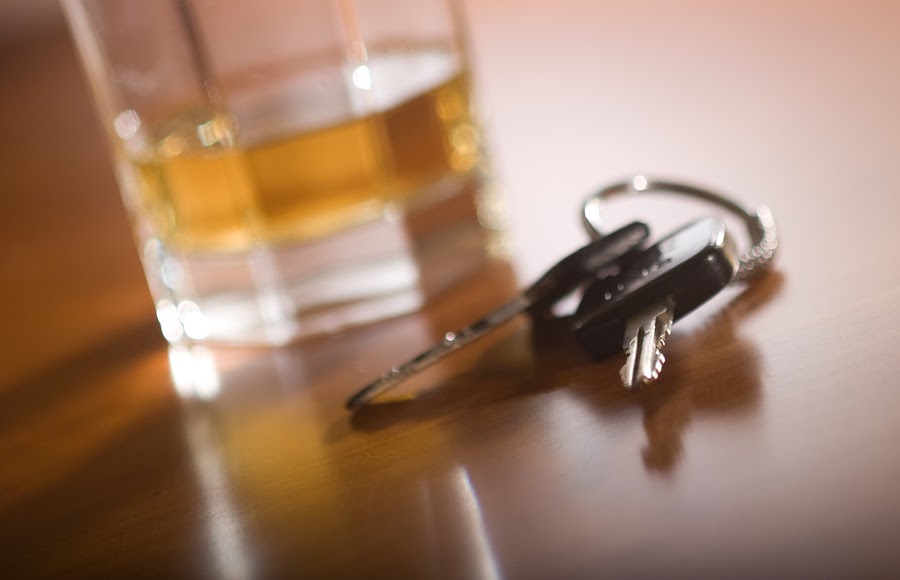Having a criminal record can be a huge problem for people applying to jobs, applying for scholarships, seeking an education or training, or trying to work with children. In some jobs, especially driving jobs, a record of DWI may kill your chances. In New Jersey, DWIs up to 10 years old increase penalties for multiple DWI offenses, and can send you to jail. For other purposes, DWIs may remain on your record and haunt you for a long time. If you have been charged with a DWI in South Jersey, talk to the Atlantic City DWI defense lawyers at The Law Offices of John J. Zarych. We offer free consultations for new cases.
Does a DWI Go on Your Criminal Record in NJ?
In New Jersey, driving while intoxicated (DWI) is a traffic offense. This means that any record of DWI, along with any other records of traffic infractions from New Jersey’s Motor Vehicles and Traffic Regulation code (N.J.S.A. Title 39) remain a part of your permanent driving record. Your driving record contains a full history of any traffic tickets you received throughout your life, including any DWI convictions.
Since DWI is a serious driving offense, New Jersey has deemed it important to make it part of a permanent record. This means that your record will last indefinitely, and potential employers and others will always be able to check for DWI offenses.
New Jersey law does allow for certain offenses to be “expunged” or removed from your criminal record. Your criminal record contains a history of any “criminal” convictions, including both “indictable crimes” and “disorderly persons offenses.” These are the New Jersey equivalent of what other states refer to as “felonies,” punishable by a year or more in prison, and “misdemeanors,” punishable by less than a year in prison. Even though DWI in New Jersey does carry potential jail time, it is not considered a “crime” for purposes of expungement.
Since DWI is not a crime, it will also not appear on your criminal record. This means that if an employer runs a background check on you for crimes, they may not see DWI offenses. Unless an employer or other examiner intentionally runs a check of your driving record, a DWI conviction may never appear as part of your criminal record.
Since DWI is not a crime, you may also be able to deny any “criminal” convictions if asked. However, especially if questions about prior convictions are a part of official government documents, you should check with an attorney before answering. Understanding the terminology associated with these questions may open loopholes where you can avoid having to disclose DWI convictions – but it also treads a thin line between honest answers and perjury.

Repeat DWI Offenses Within 10 Years
The penalties for DWI are increased depending on certain factors. First, if your DWI was based on general alcohol intoxication or a BAC (blood alcohol concentration) of .08%-.10%, you fall into the first “tier” of DWI. If you were charged with a DWI based on drug intoxication or a BAC over .10%, you fall into a higher “tier” or DWI with enhanced penalties. You also face additional punishments for repeat DWI offenses.
A DWI offense only counts as a “second” or “third” DWI if it is your second or third DWI within 10 years. A second, third, or subsequent DWI each carries increased penalties and mandatory jail time. However, this only triggers if the offense is committed within 10 years of your previous DWI. Since this clock resets every 10 years, old DWIs should not automatically increase the penalties. Still, your DWI record never goes away, and a judge will still see your prior DWI convictions on your driver’s history.
Because a judge can use any information when sentencing you for DWI, even a DWI older than 10 years old may influence the judge’s decision. Jail time up to 30 days, an ignition interlock, probationary supervision, and other terms are available as punishment, even for a first-time DWI. If you have a history of old DWIs, the judge may not be able to trigger the automatic sentence increases, but may still give increased penalties available for a first-time DWI. An attorney may be able to argue for a reduced sentence if you are convicted, and fight to keep you out of jail. Talk to an attorney about how your older DWI convictions may still affect new DWI charges in New Jersey.
South Jersey DWI Defense Lawyer
The Atlantic City criminal defense lawyers at The Law Offices of John J. Zarych represent those charged with DWIs in Galloway Township, Egg Harbor, Atlantic City, and throughout South Jersey. For a free consultation on your case, contact our law offices today at (609) 616-4956.







